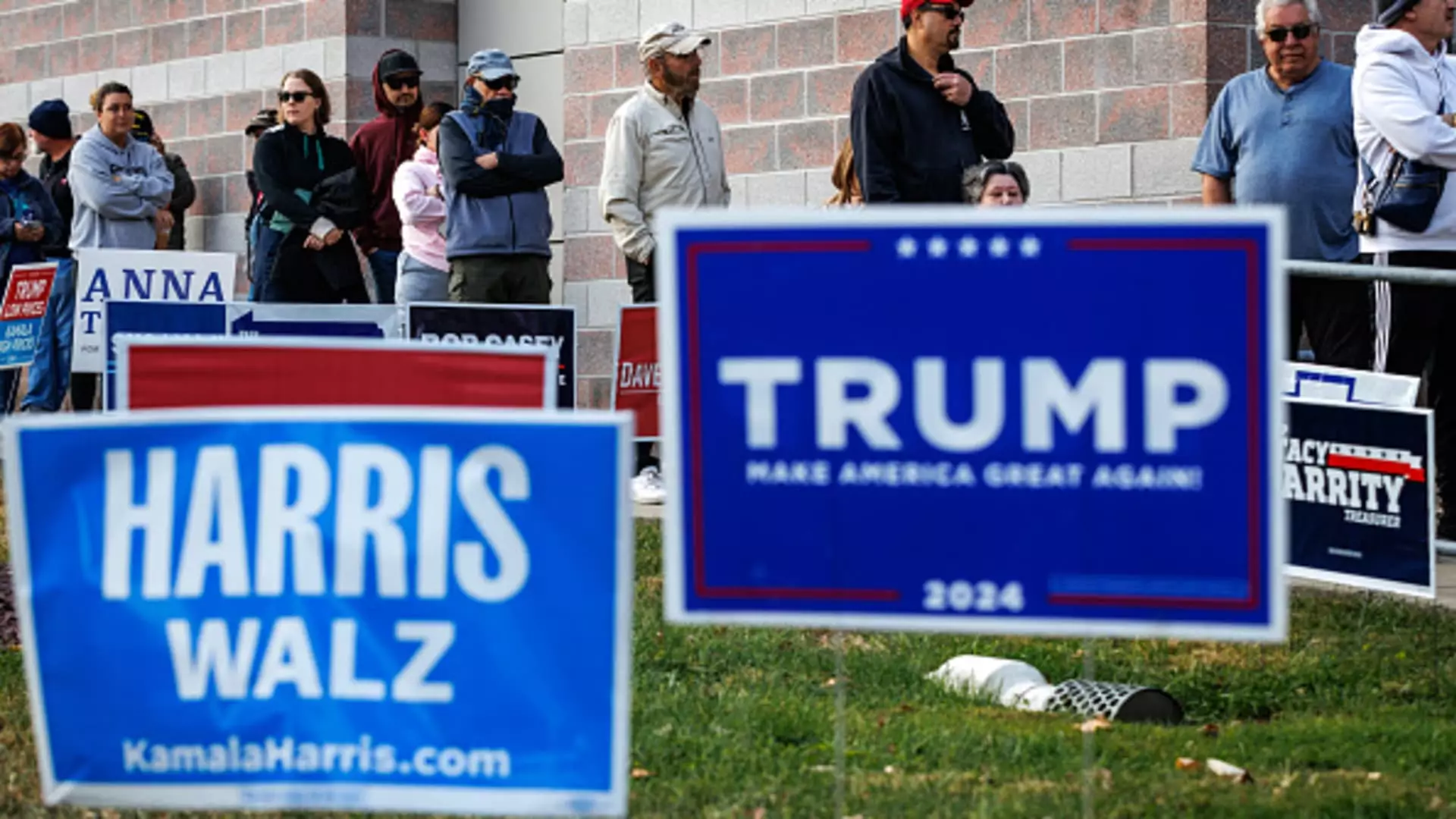In the wake of the recent elections, a notable shift in sentiment has emerged regarding the economic wellbeing of voters aged 50 and older. A recent AARP post-election poll provides clear insights into how this demographic perceives their financial status when compared to four years prior. Almost half of older voters—specifically, 47%—reported feeling worse off now, and the concern escalates to 55% among swing voters within the same age bracket. This alarming data reveals a disillusionment that could significantly affect future political landscapes, especially in key Congressional districts where older voters have wielded considerable influence.
The implications of this shift cannot be understated. The AARP commissioned a bipartisan research firm to analyze these voters’ sentiments across critical electoral battlegrounds. In a detailed analysis involving responses from 2,348 likely voters, it became clear that older voters—predominantly leaning towards Republican candidates—were pivotal in securing victories for the party in many competitive races. According to Bob Ward, a Republican pollster, it was this group’s perspective on economic issues that substantially impacted the election outcomes.
Interestingly, economic anxieties appear to underscore older voter’s choices at the polls. In a prior survey conducted in June, 62% of older respondents indicated varying degrees of worry concerning their financial situation. Fast forward to Election Day, the latest poll reinforces this trend, with over half of older voters prioritizing financial issues, including inflation and Social Security eligibility, when casting their votes.
The findings suggest that fears surrounding personal finance, particularly heightened by inflation, have surfaced as pivotal issues. Among the primary concerns, food expenses loomed largest, affecting 39% of older respondents. This concern was closely followed by worries related to health care and prescription costs. With the ongoing economic pressures affecting their quality of life, older voters are increasingly motivated by pocketbook issues, which may redefine their political affiliations and loyalties.
As it stands, Republicans were perceived to have an advantage concerning economic issues among older voters, although Democrats continue to hold a slight edge on Social Security. This disconnect marks a critical point of contention as midterm elections approach, indicating that both parties must navigate this sentiment to secure their footing among older voters.
The state of Social Security has emerged as another pressing issue for older adults. Both presidential candidates made promises to safeguard the program during their campaigns, yet concrete plans to address its long-term solvency remain markedly absent. Reports reveal that the Social Security trust fund could face depletion by 2033, with 79% of benefits at risk without legislative intervention. Advocacy leaders stress the urgency of addressing these concerns before they escalate into a crisis.
Social Security is vital for millions, with about 42% of seniors relying on it for at least half of their income. As the primary source of retirement funds for most Americans, any threats to its stability could have catastrophic impacts on financial security among older populations. Furthermore, Medicare also faces similar challenges, particularly regarding its hospital insurance funding.
The AARP has pointedly criticized various policy proposals that would undermine the trust fund’s integrity, noting their detrimental effects on economic stability for seniors. Amidst such contentious issues, there’s a compelling call for politicians to forge a responsible path forward to protect these crucial safety nets.
As we scrutinize voter sentiments and financial realities, it is evident that older adults represent a vital voting bloc whose opinions and concerns should not be overlooked. The intersection of personal economic worries, political affiliation, and prospective policy changes will unequivocally shape the political landscape in days to come.
Given their significant turnout driven by economic anxieties, older voters could greatly influence upcoming elections by leveraging their unparalleled participation. Their unique perspective on pertinent issues, from Social Security to health care, underscores the necessity for political candidates to engage with their needs substantively.
Ultimately, as older voters navigate their financial concerns, the path forward requires not just acknowledgment but effective policies that cater to their immediate reality. As they seek assurances for financial stability, it becomes paramount for both parties to develop clear strategies addressing economic security that resonate with this generational cohort. The need for dialogue and tangible plans has never been more essential as we approach pivotal electoral decisions influencing the future well-being of millions.

